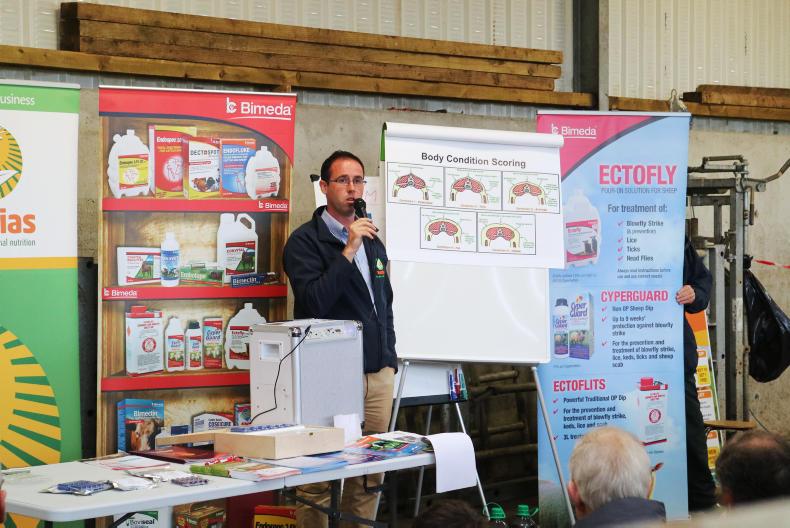Joe Naughton Aurivo
Speaking at the farm walk, Aurivo farm commercial specialist Joe Naughton told farmers that early planning is vital to achieve favourable mating performance.
“The last few weeks have been difficult on farms in the western half of the country. While grass growth rates have been relatively good, continuous rainfall has lowered the dry matter of grass, with the same feeding power not in it. It is important that you walk the farm and see how you are fixed for grass.
“Delaying decisions and not putting out fertiliser or taking steps to build grass supplies will have long-term impacts,” he says.
“It is also important to monitor ewes and ensure they are in the right condition and on a rising plane of nutrition heading into breeding. The three scenarios here (from research in Northern Ireland) show the importance of this.
“If we have a ewe weighing 67kg and losing 1.5kg weight in the run-up to mating, it will affect the potential litter size and leave it hard to achieve a litter size over 1.58 lambs per ewe to the ram.
“The same ewe fed at maintenance and weighing 68kg will be limited to a litter size of 1.76 lambs; while a ewe on a rising plane of nutrition and gaining 1.7kg in the run-up to mating will have the potential to achieve a litter size of 1.96 lambs per ewe,” he explains.
With the dry matter of grass reducing and quality declining as the season progresses, Joe also points to the importance of assessing the current status of lambs and most economical finishing regime.
This is especially important with reports of higher numbers of lambs remaining on farms and competition for grass late in the season.
“With the feeding power in grass reducing, it is worth considering the best finishing option to help reduce demand and build autumn grass supplies. Introducing concentrates is a cost, but may be the best return on investment if it gets lambs away faster and prioritises grass for ewes.
“Every situation is different, and my advice is to walk the farm tomorrow, look at current grass supplies and decide what needs to be done,” concludes Joe.




SHARING OPTIONS